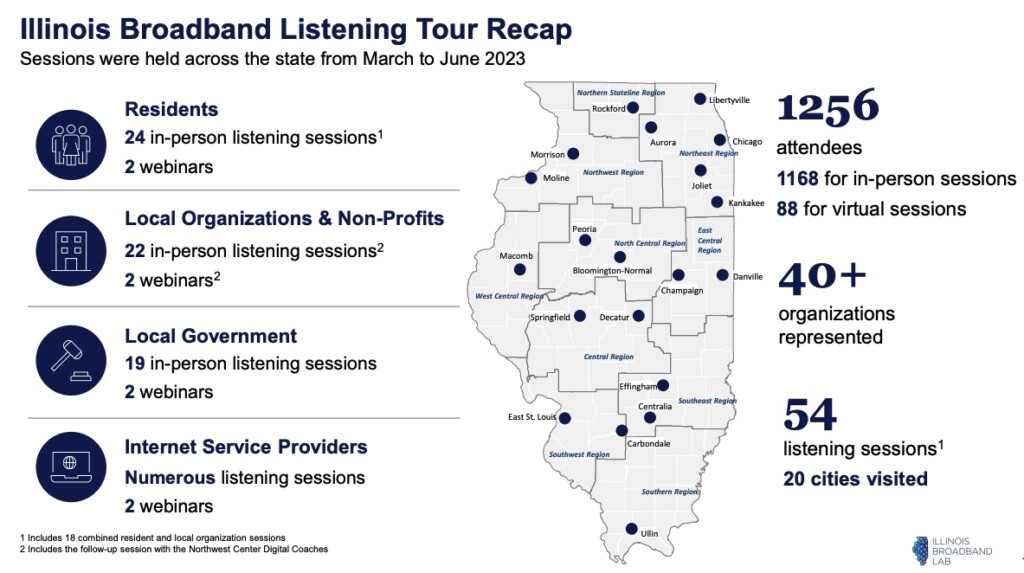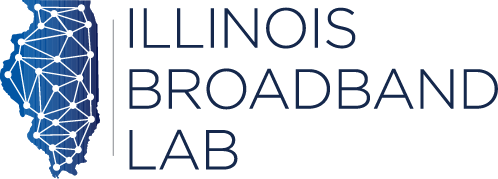URBANA – The Illinois Broadband Lab (IBL), a collaborative effort between the University of Illinois System and the Illinois Office of Broadband, recently concluded a three-month series of listening sessions across the state to better understand the challenges residents face in accessing reliable internet service.
“In today’s world, internet access isn’t a privilege—it’s a right,” said Governor JB Pritzker. “Thanks to the Biden Administration, we’ve received a historic $1 billion in federal funds to expand broadband throughout the state—on top of our investments from my administration’s landmark Rebuild Illinois Capital Plan. Illinois Broadband Lab’s listening tour gave us critical insight as to how we can best disperse these dollars to have a real, tangible impact on residents in every corner of Illinois—and I offer my deepest thanks to all who shared their stories and ideas.”
The listening tour was designed to gather input from residents, community-based organizations and local public agencies to help shape the Connect Illinois Broadband and Digital Equity Planning Initiative, which is focused on maximizing more than $1 billion in federal funds from the Infrastructure Investment and Jobs Act that Illinois is receiving for broadband and digital equity.
The IBL hosted 1,256 Illinoisans at 54 in-person and virtual sessions in 20 communities, reaching every region of the state.

“We were excited to see such a high level of engagement and energy around improving access to high-speed internet in every region of the state,” said Matt Schmit, Director of the Illinois Office of Broadband. “Across the board – from residents to community leaders – there’s clear consensus that reliable, affordable internet access is a necessity for thriving in today’s digital age. “Our listening tour was an important first step in the planning process for how best to use historic federal broadband funding to accelerate and expand the work we started with the Connect Illinois Broadband Grant Program. We will continue to work with residents and stakeholders across the state as we finalize our plans and start putting the federal dollars to work toward the goal of making sure every Illinoisian has access to the benefits of high-speed internet.”
Key Take-Aways
- Affordability of both internet subscriptions and devices (e.g., computers, tablets) is a pervasive issue affecting urban and rural areas alike.
- Urban participants raised concerns about bandwidth limitations in high-density residential buildings, citing regularly interrupted connections.
- There is a need for accessible digital learning opportunities that help build knowledge on cyber security and privacy.
- There is also a need for accessible programs in multiple languages and with specific training for learners across ages.
- Suburban and rural areas indicated affordability gaps were paired with gaps in access to quality, reliable, high-speed broadband that can support more than one person online at a time.
- Many rural homes and communities have very limited options in internet providers and technologies; in some areas, the only option is fixed wireless or satellite service, which can be unreliable and expensive.
- Barriers to reliable home internet access cause real-life adverse impacts, including students struggling with remote learning and homework, remote workers facing hardship, lost income, or missed opportunity, major inconvenience and schedule disruptions for those who must rely on public Wi-Fi access points such as local libraries or fast-food restaurants for their daily internet needs.
- Many local businesses face daily challenges serving their customers and operating efficiently due to unreliable internet.
- Local regulations and municipal zoning laws can slow down the buildout of high-speed infrastructure in underserved areas, highlighting the need for further collaboration between municipalities and providers.
The Illinois Office of Broadband and Illinois Broadband Lab are using the insights gathered during the listening tour to inform the state’s proposals for Broadband Equity, Access and Deployment, and Digital Equity funds as required by the National Telecommunications and Information Administration (NTIA), which administers both federal programs. Opportunities for continued public engagement and public comment will be forthcoming.
####
About the University of Illinois System
The University of Illinois System is a world leader in research and discovery, and the largest educational institution in the state with more than 94,800 students, about 26,000 full-time equivalent faculty and staff, and universities in Urbana-Champaign, Chicago and Springfield. The U of I System awards more than 24,000 undergraduate, graduate and professional degrees annually.
About the Illinois Office of Broadband
The Illinois Office of Broadband is housed within the Illinois Department of Commerce and Economic Opportunity. The office is responsible for administering the Connect Illinois Broadband Grant Program and has developed related programming – in community and regional planning, local capacity building, and digital equity and inclusion. Beyond administration of grants and programming, the office has forged various collaborations throughout Illinois, most notably creation of the Illinois Broadband Lab with the University of Illinois System and publication of a bi-weekly newsletter, Illinois Broadband Connections, with the Illinois-based Benton Institute for Broadband & Society.

